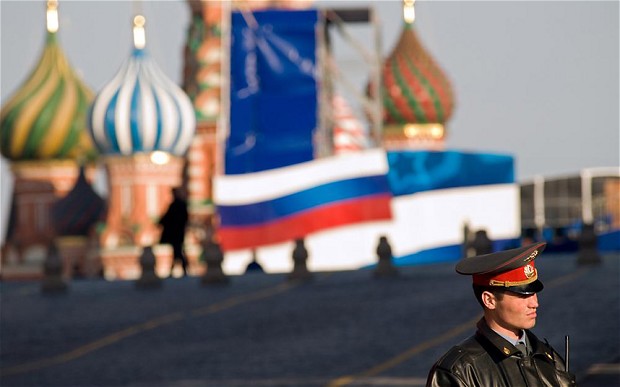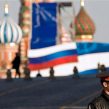
Inadequate Professionalism in the Police Forces Remains a Problem for the Russian State
Publication: Eurasia Daily Monitor Volume: 10 Issue: 32
By:

New recruits to the Russian police will soon undergo mandatory polygraph tests in order to gain admission to the force. The requirement, introduced in June 2012 as part of a comprehensive reform of the police, will now be introduced in practice (https://izvestia.ru/news/528950). The Russian Ministry of the Interior (MVD) purchased 83 polygraph machines at a cost of 300,000 rubles (around $10,000) each. The tests are to be carried out in every region of the Russian Federation and are designed to weed out alcoholics, drug addicts and individuals with unstable psychologies (https://www.m24.ru/videos/11692). Indeed, one of the main effects of the tests will be to prevent such people from applying to join the police in the first place. The introduction of the tests came after a series of recent scandals, including the conviction of the head of the Moscow police for planting illegal drugs on suspects. Another infamous and controversial scandal involving the Russian police was connected to the lawyer Sergei Magnitsky. Magnitsky, who worked for the US investment fund Hermitage Capital, was arrested by the police and died in custody after being denied access to medical treatment during his detention (https://www.vedomosti.ru/politics/news/2009/11/17/886095). It was the treatment of Magnitsky that provoked the United States Congress to pass a law protesting human rights abuses in Russia. The well-publicized Russian reaction was to impose a ban on American couples adopting Russian children.
Although the 2012 reforms might be viewed as an attempt to mollify the protests against corruption that began in December 2011, they are also part of a package of reforms to “professionalize” the police introduced by then-President Dmitry Medvedev in 2010. According to the 2010 law, the purpose of the police is the “defense of the lives, health, rights, and freedoms of citizens of the Russian Federation… for the prosecution of crimes, defense of social order, and guaranteeing of social safety.” Symbolically, the reforms also changed the name of the Russian police from the Soviet-style “Milizia” to the more common “Poliziei” (https://lenta.ru/news/2010/08/07/polizei/). Other components of Medvedev’s reforms were to decrease the number of police officers from 1.28 million to 1.1 million and to change the funding structure of the police so that they are paid for from the federal and not regional budgets (https://mvd.ru/work/polozhenie). These particular reforms, therefore, became yet another component of the “power vertical” system of rule constructed by Vladimir Putin, in essence taking even more responsibility away from the regional governors.
The professionalization of the police, including better screening of recruits, is certainly an important issue for the Russian state to tackle. Pervasive corruption and the police’s connections to organized crime undermine the autonomy of the state and so threaten its viability. This is most dramatically illustrated in the case of police tolerance of nationalist crimes. Neo-Nazi skinheads who commit grotesque acts of violence against members of ethnic minorities are too frequently charged with the lesser crime of “hooliganism” and not with violating Article 282 of the Constitution Russian Federation, which forbids inciting hatred and violence based on sex, race, nationality, language, origin, religion as well as any social group affiliation. Sentences are usually much greater when prosecution takes place under the latter charge. Indeed, in 2006, this was protested against by the then-head of Dagestan Mukhu Aliyev: “if the crime is committed on nationalist grounds, then it should be classified as such, and not recorded as a hooligan prank” (https://grani.ru/Politics/Russia/m.109720.html). While the number of prosecutions under Article 282 increased in 2010–2011, such gains were reversed in 2012. The human rights group Memorial has also accused the police of active involvement in violence against some groups, like the Roma (Gypsies) (UCSJ Bigory Monitor, 2006; https://www.memo.ru/hr/discrim/ver1/index.htm; https://www2.ohchr.org/english/bodies/cat/docs/ngos/fidh_roma.pdf). The unequal application of the law contributes immensely to alienation between ethnic Russians and minorities. It is also likely to gain more prominence when Russia comes under the international spotlights of the Winter Olympics in 2014 and the World Cup in 2018.
Concerns also persist over the politicization of the police force and the prosecution of protestors against the regime. Such prosecution is sometimes conducted under the cover of supposedly protecting the rights of religious minorities. This indeed was the charge under which authorities prosecuted the punk rock band Pussy Riot. More recently, the police were ordered to suppress violators of the new law that bans “homosexual propaganda” in Russia (https://tvrain.ru/articles/gosduma_bystro_primet_zakon_protiv_geev_ih_budut_presledovat_po_vsej_rossii-333857/). Further, the police have canceled their international activities with their counterparts in the US to prevent drug and human trafficking that began in 2002. The claim was that cooperation “does not correspond to present realities” and “has already exhausted its potential.” Such reasoning does not stand up to scrutiny, however, as the flow of heroin from Afghanistan is still causing problems on Russian streets and human trafficking is an omnipresent threat. A far more reasonable interpretation is that the cancelation of bilateral police cooperation is a response to Washington’s Magnitsky law and marks a further attempt to distance the Russian Federation from the United States (https://www.inosmi.ru/russia/20130202/205380602.html). There are significant dangers to having the domestic police being used as a tool of the state, not least of which is international criticism. Whether there are further efforts to reform the police or not, the true professionalization of the police will need to remain a top priority for Kremlin lawmakers to avoid such criticism—both internal and external—in the future.




